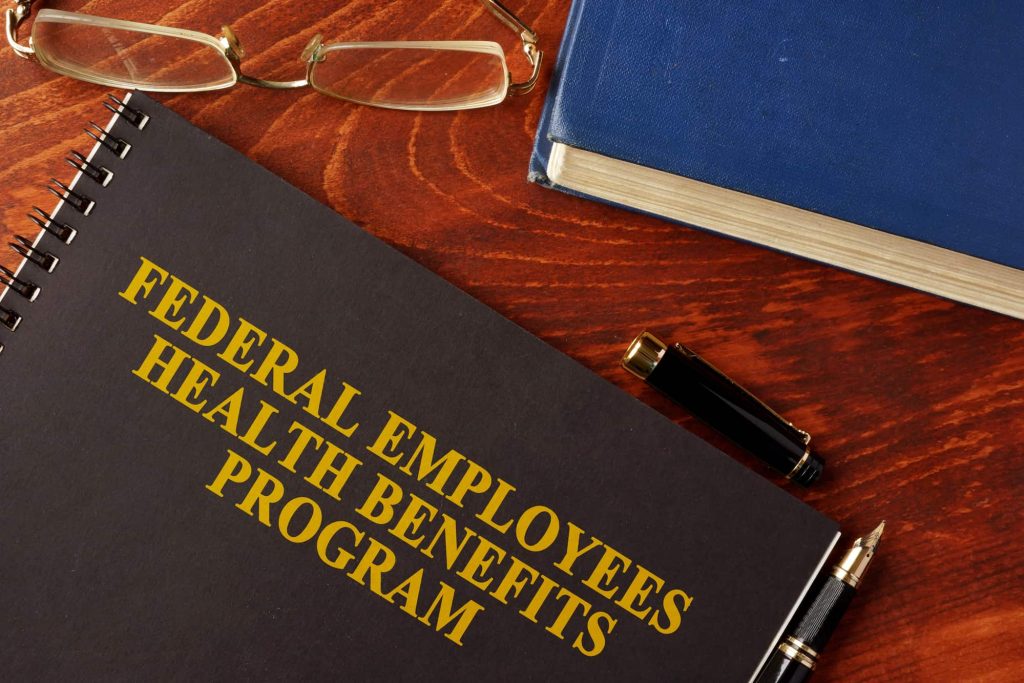The Federal Employee Health Benefit (FEHB) program is the health insurance program for federal employees — the world’s largest employer-sponsored group health insurance program, covering more than 9 million people.
And like most health insurance programs offered by an employer, premiums have to be paid, partially by the employer and partially by the employee. But similar to all of your benefits, you likely have questions about what changes with your FEHB coverage when you retire. Here we will cover 5 FEHB premium questions feds have going into retirement.
5 FEHB Premium Questions
1. What percentage of my FEHB premium will the government cover?
While you are still working the government covers roughly 72% of your overall premium. The amount you are paying for FEHB is equal to roughly 28% of the actual cost of that plan. The government is picking up the lion’s share of the premium for you right now while you are still employed.
The good news is, they’re going to continue to do that into your retirement. This number of 72% is set, and you will continue to reap the rewards of the government paying part of your premium even when you step foot into retirement.
2. What percentage of my FEHB premium do I have to cover?
The FEHB premiums stay the same for you whether you are still working or whether you have started retirement. Your premium stays at 28%.
Some may think that retirees should pay less than their younger counterparts but, in the end, that’s how the group health plan works.
Advertisement
They have spread out those premiums across the entire class of people, and everyone pays the same amount for that particular plan regardless of their age and regardless of whether they’re employed or retired.
3. What’s the catch? Premium Conversion
While the government still pays roughly 72% of your overall premium, there is a catch. It has to do with a program called premium conversion.
While federal employees are still working, they pay their FEHB premiums with pre-tax money. This is a huge perk and allows employees to save money on their taxes, because the amount they pay to the FEHB carrier is not reported as income.
However, once an employee retires, if they have chosen to keep their FEHB coverage in retirement, they will begin to pay the premium with after-tax money. Meaning your premiums are still the same, but the price tag is higher due to taxes.
What does that really mean, financially speaking? Read 3 Myths About FEHB in Retirement for more information and an example.
4. What if my FEHB premium exceeds my pension?
In the case of lower paid employees who end up having a lower pension, if the actual cost of having your FEHB plan each pay period ever exceeds the amount of your federal pension, you will have to pay the difference directly to the Office of Personnel Management (OPM).
This does not happen often, but there are plenty of people that have a lot of obligations coming out of their federal pension check.
For example, you may have the Federal Employees Group Life Insurance (FEGLI) taken out, or a large survivor benefit you’re protecting on your pension. You may even have the federal long-term care program that’s being deducted as well.
In this case, eventually you might not have enough dollars left over in your pension to pay your FEHB premium. Nonetheless, your premium is still due, and you can be certain that they’re going to demand you pay the difference directly to OPM each month in retirement.
5. If I enroll in Medicare will my FEHB premium change?
If you decide to enroll in Medicare as a retiree, typically at age 65 or later, it’s unfortunate but your premiums for FEHB will not change.
There are some insurance plans that offer a premium reimbursement for those who also enroll in Medicare, because the plans want you to enroll in Medicare. Therefore, there may be a bit of a kickback for some of your premium. You’ll need to sort that out with the insurance provider as to whether your particular plan might qualify for a Medicare reimbursement.
Overall, FEHB serves federal employees well into their retirement years. Now that you understand how your FEHB premiums work in retirement, please make sure you know The 3 Rules to Keeping FEHB in Retirement. Then be sure to make an appointment with a financial professional so you can retire with confidence.




